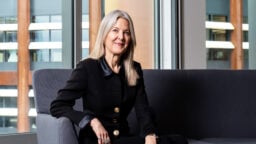British collection society PRS For Music has nailed down a new tariff for live events in the UK which will see it receive 4% of the ticket price for live concerts as well as most other music events.
That’s a 1% increase on the previous tariff of 3% – a decision approved by the Copyright Tribunal and announced today following a three-year consultation between PRS members, licensees, stakeholders and live sector industry bodies.
However, not all music events will have to shell out more to PRS: certain music festivals will see their royalty rate reduced from 3% to 2.5%.
UPDATE: What’s more, a new direct licensing mechanism will mean that if a song is performed outside of the PRS repertoire – for example, a public domain song – it will not come under the tariff and the effective 4% rate will reduce.
These figures only apply to concerts and events which agree to account ticket booking fees to PRS: if they decline to do so, the tariff will see them charged 4.2% for most events and 2.7% for festivals.
One source told MBW: “Many promoters will probably just elect to do shows at 4.2%, as they may not know the exact booking fee applied to every ticket sold by every ticket outlet, and its administratively prohibitive to find out.”
The new terms will become effective next month on Monday, June 11.
Other amendments wrapped up in the tariff include the minimum fee charged for events being waived entirely, providing that music reporting requirements are met.
In addition, there will need to be an incorporation of a direct licensing mechanism, as agreed with the live sector.
Paul Clements, Executive Director of Membership, International & Licensing, PRS for Music, said: “By working together with our colleagues across the live sector we have successfully negotiated an agreed outcome for all parties and I’m very pleased that the Copyright Tribunal has now approved the terms, as agreed between PRS and the Live sector representatives.
“We have reached an agreement which not only recognises and rewards the huge contribution made by our songwriter and composer members to the live industry but, as importantly, recognises the different needs and strengths of the thousands of venues and events across the UK that are critical to the ongoing sustainability and diversity of the UK live music scene.”
Phil Bowdery, as Chairman of the Concert Promoters’ Association, said: “We have all worked hard to reach this agreement. It recognises the importance of the live industry but also, what is of huge significance, is that it recognises the sector’s diversity.
“By coming to this agreement, and the recognition of the common ground we share, we believe it works in the best interests of all parties involved.”
Agreement on the terms of a new Tariff LP was reached in July 2017 with major industry bodies representing the live sector including; the Association of Festival Organisers (AFO), Association of Independent Festivals (AIF), British Association of Concert Halls (BACH), Concert Promoters’ Association (CPA), Glastonbury Festivals Limited, Music Venue Trust (MVT), National Arenas Association (NAA), Society of London Theatre (SOLT), and the UK Theatre Association.
Chief Executive of the Association for Independent Festivals, Paul Reed, said: “AIF is pleased that, having made the case and called for festivals to be treated differently to concerts at an early stage of the process, this has been acknowledged in the new Tariff LP with a reduced rate for festivals. By working with PRS and our partners across the live industry – including the Concert Promoters Association and others – a resolution has been reached. We have all worked hard on this issue over the last three years and it is a significant result not only for AIF members but the entire festival sector.”
Music Business Worldwide





